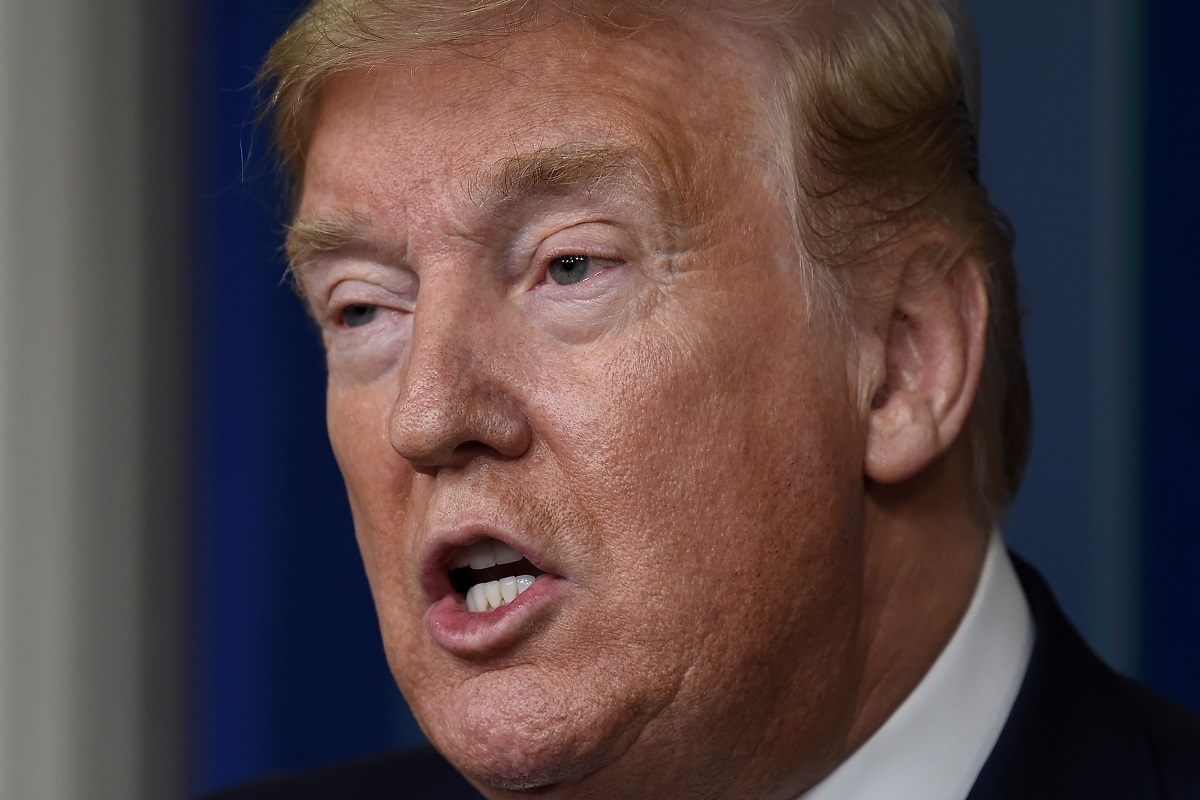As the United States is grappling with the Coronavirus pandemic, the country’s Food and Drug Administration on Friday cautioned against the use of malaria drug hydroxychloroquine in COVID-19 patients even as President Donald Trump, who has touted it as a “game changer,” advocated for an additional review.
Trump told reporters at the White House on Friday after the FDA announcement, “You hear it both ways, I’m not a doctor. A study has to be done. If it helps, it’s great. If it doesn’t work, don’t do it,” he said.
Advertisement
Trump said he had just spoken with the president of Honduras, who had touted the drug when calling to ask for ventilators.
“If it works I think everyone would be in favor of it…check with him, call him.”
Hydroxychloroquine first approved in 1955, provided no benefit and potentially higher risk of death for patients at US veterans hospitals, according to an analysis that has been submitted for an expert review on Tuesday.
The FDA said on Friday it was aware of increased use of hydroxychloroquine and chloroquine through outpatient prescriptions and the malaria drugs could cause abnormal heart rhythms and dangerously rapid heart rate.
COVID-19, the disease caused by the new coronavirus, has no approved treatment or vaccine.
In an attempt to stop the spread of Coronavirus, hydroxychloroquine has been widely based on anecdotal reports that it may provide some benefit.
There are several randomized trials underway in the United States and elsewhere, with the National Institutes of Health last week starting a study to evaluate the safety and the effectiveness of hydroxychloroquine.
A research team in Marseilles, France, published data showing that out of 80 mild COVID-19 patients treated with hydroxychloroquine and antiobiotic azithromycin, 93 percent had no detectable levels of the virus after eight days.Doctors have questioned the value of the Marseille study and several papers from China as being too small or poorly designed to offer hard evidence of benefit.
The FDA’s announcement comes a day after the European Union’s drug regulator warned of side effects of the drugs, urging medical professionals to closely monitor patients on the medicines.The FDA has allowed healthcare providers to use the drugs for COVID-19 through its emergency use authorization, but has not approved them to treat the disease.
The heart rhythm risks may increase when the medicines are combined with other drugs, such as antibiotic azithromycin, as well as in patients with existing heart and kidney disease, the agency said on Friday.
Within hours of Trump’s initial endorsement on March 19, pharmaceutical supply chain experts reported shortages as doctors began prescribing hydroxychloroquine for themselves and their families.
Patients have also pressured doctors to use the therapies
Rick Bright, the ousted director of a US agency charged with developing drugs to fight the pandemic, said on Wednesday he was dismissed because he called for careful vetting of the therapies.
The US acquired 29 million doses of Hydroxychloroquine from India, and at the request of President Donald Trump it cleared the export of 35.82 lakh tablets of hydroxychloroquine to the US along with nine metric tons of active pharmaceutical ingredient or API required in the manufacturing of the drug.
President Trump, during a phone call in first week of April asked Prime Minister Narendra Modi to lift the hold on American order of the anti-malarial drug, of which India is the major producer. India, which manufactures 70 per cent of the world’s supply of hydroxychloroquine, lifted the ban on April 7.
Earlier on , hours before India made its decision official to lift ban on export of essential drugs, President Trump in an apparent warning had said that “there may be retaliation” if India does not agree to export Hydroxychloroquine.
Hydroxychloroquine is used to treat malaria and rheumatoid conditions such as arthritis. In various studies, the drug has demonstrated antiviral activity, an ability to modify the activity of the immune system, and has an established safety profile at appropriate doses, leading to the hypothesis that it may also be useful in the treatment of COVID-19.
The drug is not without risks as even short-term use can cause cardiac arrythmias, seizures, dermatological reactions, and hypoglycemia.
“Many US hospitals are currently using hydroxychloroquine as first-line therapy for hospitalized patients with COVID-19 despite extremely limited clinical data supporting its effectiveness,” said Wesley Self, emergency medicine physician at Vanderbilt University Medical Center and PETAL Clinical Trials Network investigator leading the ORCHID trial.
“Thus, data on hydroxychloroquine for the treatment of COVID-19 are urgently needed to inform clinical practice,” he added.
The United States is most affected by COVID-19 in the world with 46,243 deaths and 902,072 positive cases, according to The New York Times.











